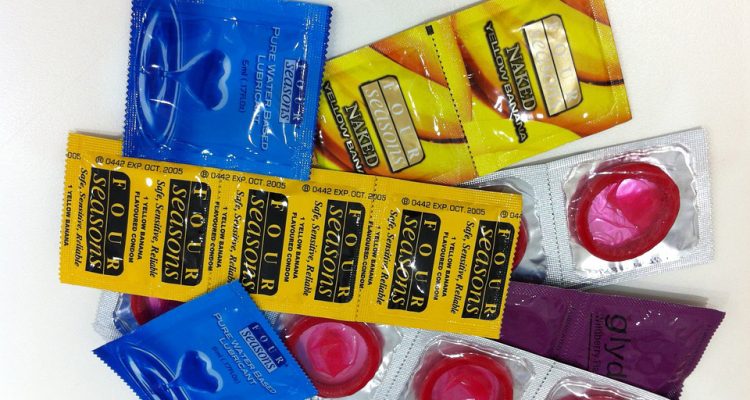What, seems to be the question, is the big deal about condoms?
Fairfield University is a Catholic Jesuit school; other Catholic Jesuit schools do not distribute condoms. Fordham University, for example, forbids the distribution of contraception on campus in their handbook. Georgetown has a student-run organization, H*yas for Choice, that distributes condoms but is not sanctioned by the University. In 2013, the Boston Globe reported that Boston College was threatening disciplinary action against a student group that distributed condoms on campus. The status quo is, obviously, that Jesuit universities do not sell condoms, do not permit students to give out condoms and would for all intents and purposes, prefer to pretend that condoms (and other contraceptives) do not exist on campus. No sex here, thank you; our students embrace the curative powers of celibacy and natural family planning.
This is what the universities aspire to, or at least claim to aspire to. But that doesn’t make it right.
So, like I said: the big deal about condoms and contraception.
Most students at Fairfield are having sex, regardless of whether or not the school ostensibly would prefer them to be abstinent. People are going to have sex anyway. This isn’t just me spit-balling; in 2017, NPR reported that the average age people start having sex is 17-18, regardless of whether they are taught to only pursue abstinence. Most Fairfield University students are having sex, or will begin having sex during their time here. And, as evidenced by NPR’s reporting, the presence of contraception on campus is unlikely to encourage people to start having sex. They either will or they won’t; it’s an individual decision.
Contraception helps prevent unplanned pregnancy. I think if asked, most Catholic church officials would consider abortion to be “worse” than contraception use. The Guttmacher Institute has found that 42 percent of unintended pregnancies end in abortion. This seems like a self-explanatory paradox.
Additionally, people aged 15-24 represent half of the people developing new sexually transmitted infections every year. The only way for sexually active people to protect against STIs is to use male or female condoms or dental dams during sex. Would University officials take condoms more seriously if there was a gonorrhea outbreak on campus? Or would they still argue that condoms on campus are disgraceful and unnecessary?
Fairfield is trying to produce students who develop, according to the mission, ethical and religious values. But it also wants to “[respect] the personal and academic freedom of all its members.” Doesn’t that personal freedom include the freedom to, say, go to the on-campus convenience store and pay one’s own money for a condom?
Selling condoms doesn’t imply that an organization approves of condoms any more than selling tide pods implies that an organization approves of the Tide Pod Challenge. Catholic social mores aside, college students are adults and should be trusted to act like adults.


Leave a Reply